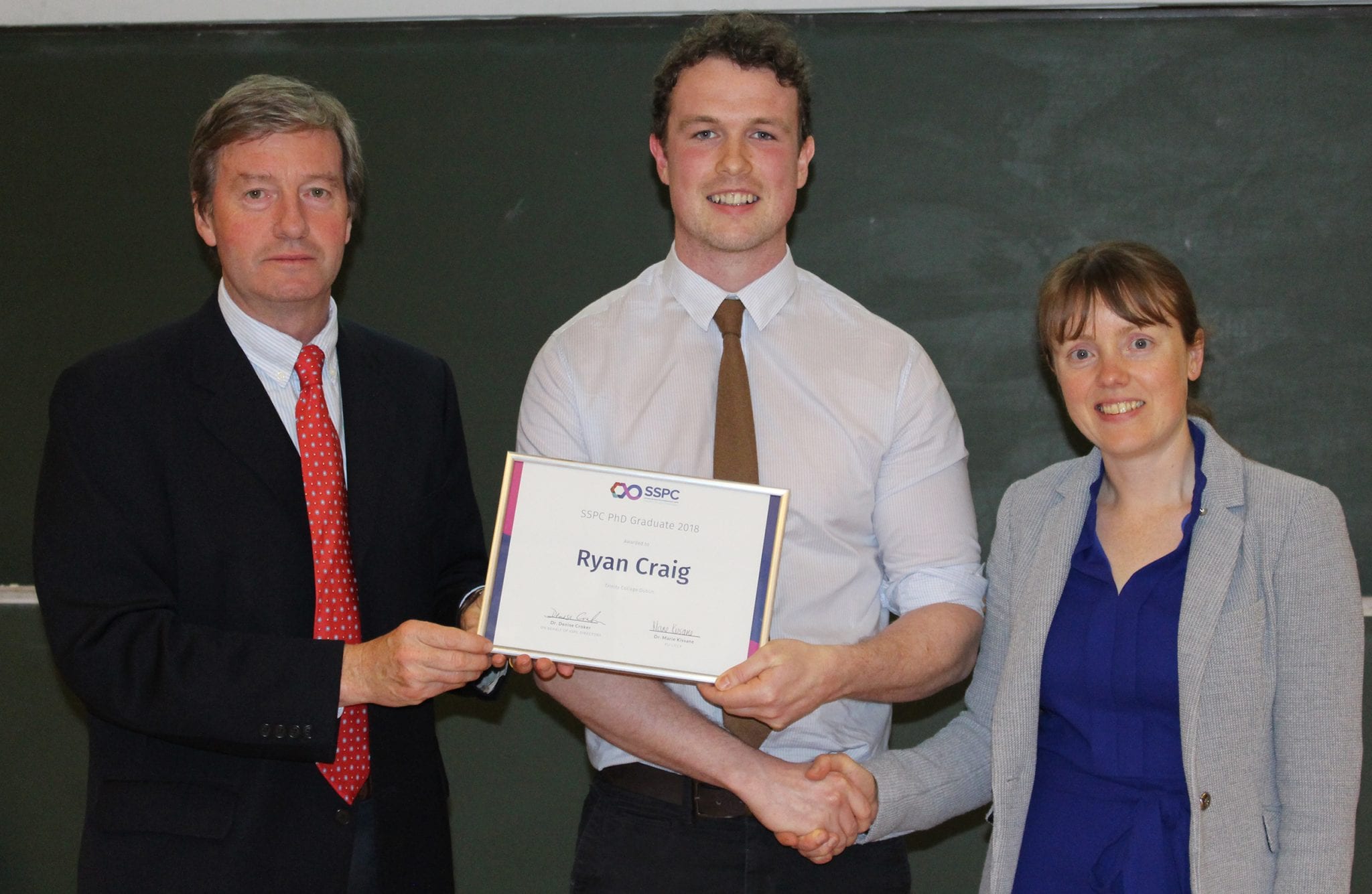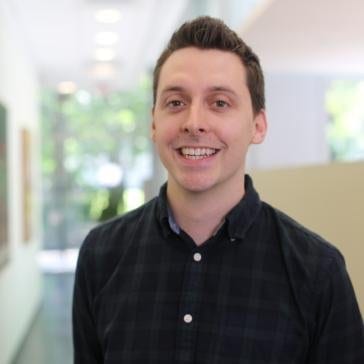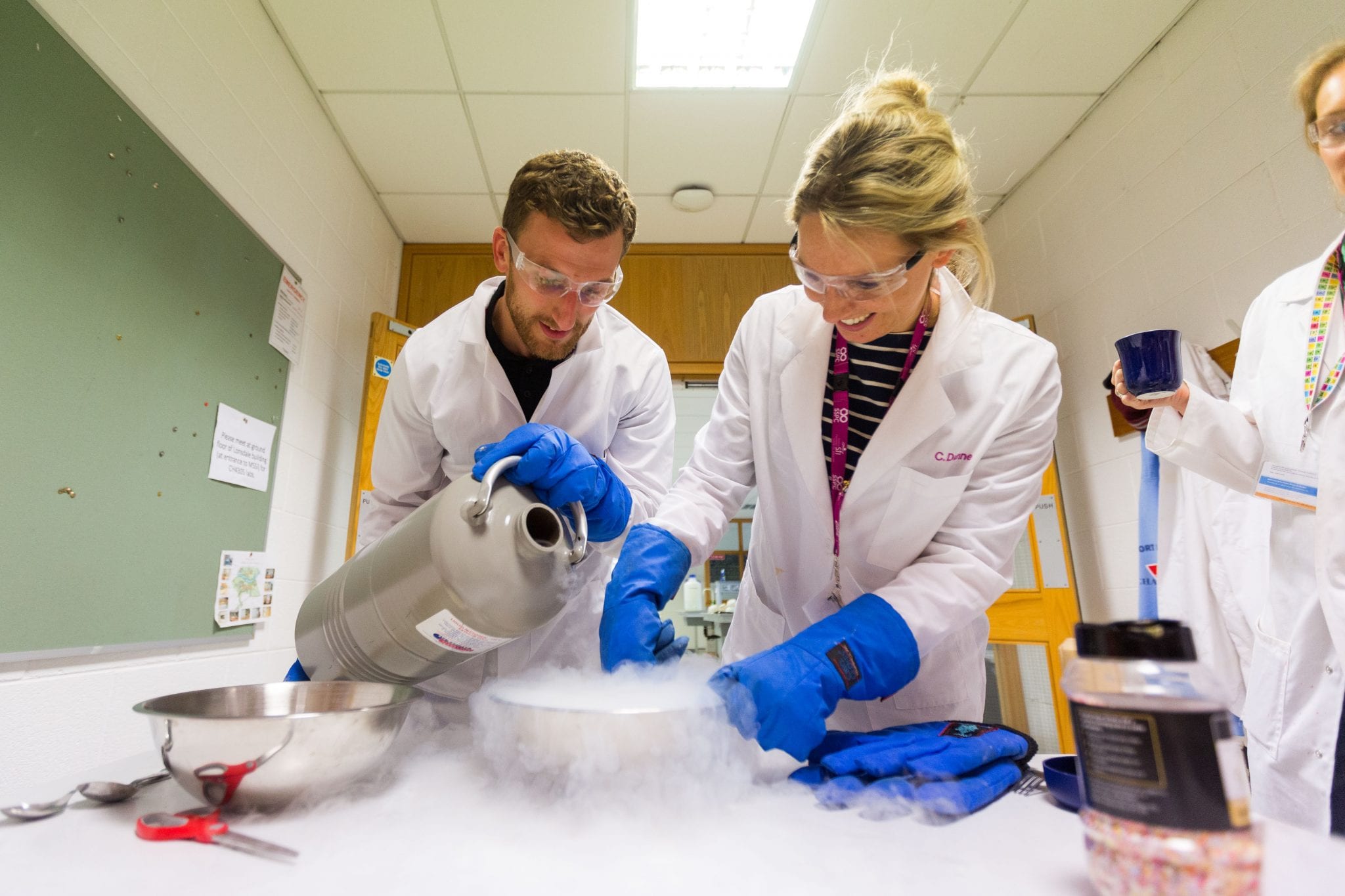Thesis Name: Development of enantioselective processes catalysed by novel asymmetric bifunctional phase-transfer organocatalysts/Topic: Asymmetric organocatalysis
Qualifications: PhD (TCD 2018), B.A (mod) medicinal chemistry (TCD 2013)
My research focused on the development of a new family of chiral bifunctional phase-transfer catalysts capable promoting an enantioselective SN2 reaction for the construction of 3,3-disubstituted 2-oxindoles with all-carbon quaternary stereocenters in high yield and excellent enantioselectivity (up to 97% ee). These oxindoles have always been regarded as useful synthetic targets due to their prevalence in natural products and their potential as pharmaceutical candidates. The utility of the aforementioned methodology was demonstrated through the concise and highly enantioselective synthesis of (-)-debromoflustramine B and (-)-flustramine B, both pyrroloindoline compounds; an important subclass of alkaloids that can behave as (inter alia) muscle relaxants, potassium channel-blockers and anti-cancer agents. The initial goal of synthesising these natural products with superior enantioselectivity than the current literature best was also achieved. This work was published in Chemistry a European Journal and was among the ten most accessed for that issue.
The newly developed family of chiral bifunctional phase-transfer catalysts, in conjunction with catalytic amounts of fluoride, were also utilised in a hitherto, unprecedented method of enantiocontrolled desymmetrisation via the ring opening alcoholysis of meso-anhydrides. To the best of our knowledge, it represented the first example of asymmetric nucleophilic catalysis by fluoride ion at a carbon centre. This work was published in Chemical Communications.
A further 3 manuscripts are in preparation for future publication.
Societal Benefits
The 3,3-disubstituted 2-oxindoles and pyrroloindoline compounds synthesised are both highly sought after synthetic intermediates due to their presence in a myriad of natural products/bioactive molecules. Fresh synthetic approaches for these molecules are continually sought-after as future small molecule drug candidates with comparable functional groups can be constructed using this template.
Experience as a PhD student with SSPC
A vital part of any successful researcher’s career is the effective dissemination of one’s work to a broader scientific and non-scientific audience. Through SSPC, I have had many opportunities, one in particular, being invited to present a poster highlighting the important aspects of my research at the 19th European Symposium on Organic Chemistry Lisbon (2015).
My association with SSPC, a unique collaboration between leading industry partners and international research institutions, resulted in me presenting talks and posters at various events. One of my poster presentations, highlighting the use of new catalysts and systems for cleaner product production while exhibiting excellent selectivity in asymmetric synthesis garnered a prize at a poster presentation in UCD (2016).
SSPC’s generous funding toward my research culminated in the composition of two papers in world recognised, peer reviewed chemistry journals. The content of these papers was the core of a presentation I gave to industry experts and members of a non-scientific background for The Dorgan Prize, which I was honoured to receive (2018).
The development of the next generation of scientists is the core ethos of the SSPC, an idea fostered and instilled within all members of the Centre. Outreach activities such as the communication of SSPC research to pupils, parents, teachers and the general-public are highly encouraged. With this in mind, I returned to my secondary school to give a career advisory talk to a host of 5th and 6th year science students. I explained my research, its societal impact and a potential career trajectory path after the completion of a PhD. This was an extremely rewarding experience made even better from the student’s feedback. The idea that someone who studied the same subjects, in the same school as them and went on to complete a PhD in chemistry was very motivating. This brilliant experience would not have been possible without the excellent outreach programme initiated by the SSPC.
The ability to discuss my research with other principal investigators from different institutes throughout Ireland, as well as leading industry experts was made possible by being part of SSPC, as it does transcend industrial and academic boundaries. The experience gleaned from these interactions has made a considerable impact on my career choice to date. The insight I gained from attending SSPC events, highlighting how academic research can help deliver industry relevant solutions, inspired me to pursue a career in the pharmaceutical sector.
#sspcstories #lookingbackmovingforward






